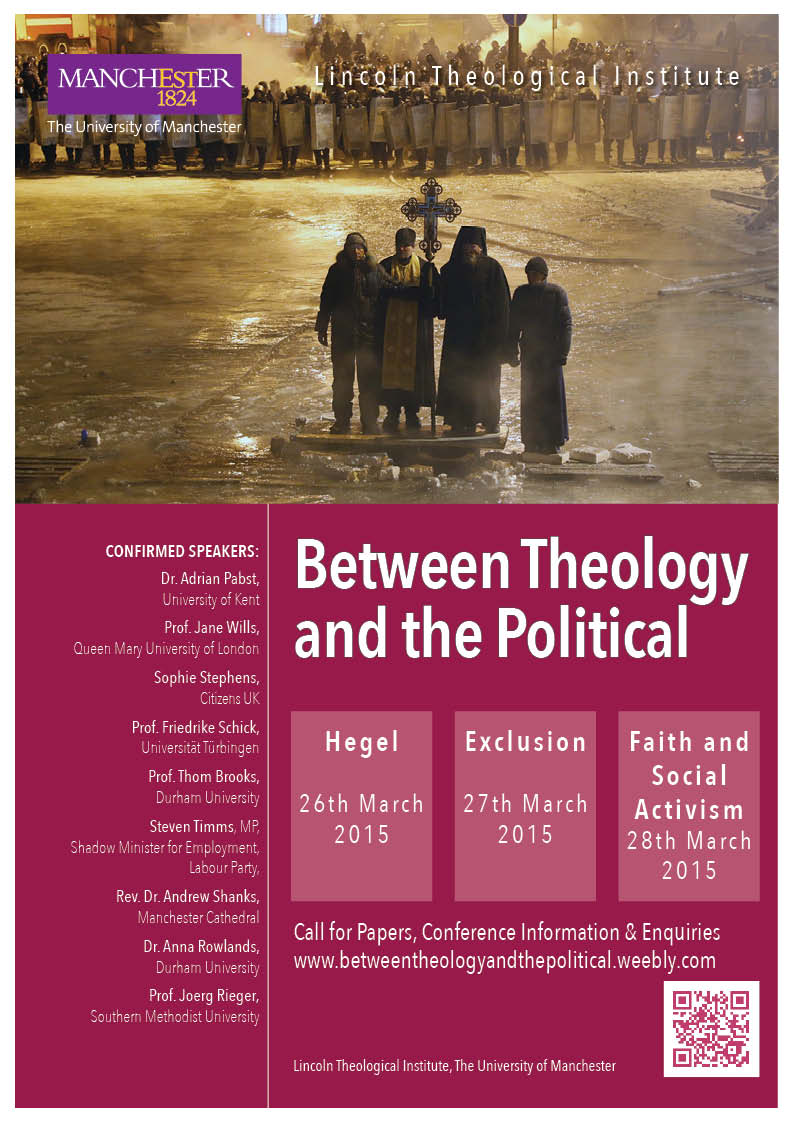Self and the City (April 24-25th)
 November 5, 2014
November 5, 2014 
Online Booking Opens on Friday 14th November 2014: www.lincolntheologicalinstitute.com/self-the-society-april-2015/
Speakers Include: Dr Ethna Regan (Mater Dei Institute of Education), Professor Linda Woodhead (University of Lancaster),The Revd Professor Timothy Gorringe (University of Exeter), Professor Michael S Northcott (University of Edinburgh), Dr Anna Rowlands (University of Durham), Revd Canon Stephen Spencer (Canon of Musoma Cathedral), Dr Jessica Dubow (University of Sheffield), Dr Chris Shannahan (The University of Manchester) Dr Alana Vincent (University of Chester)
By bringing together theologians, social theorists and political activists, this two-day conference considers the relationship between cities and self-identity. Read through the lens of the Christian tradition, we will reflect on the ecclesiastical, doctrinal and political meanings produced by urban living. Key to this enterprise is an exploration of the dimorphic nature of the city. From Babylon and Rome to Jerusalem and Augustine’s De Civitate Dei, urban spaces signify both sacred possibilities and moral dangers.
The early monastic movement fled from the corruptions of the city, while the role of the urban bishop was highly political. In contemporary culture these trends have been repeated in variants of both New Monasticism and 'Hipster Christianity' and 'Cafe Churches'. The enduring nature of these postures of embrace and retreat, raise significant questions for theo-political reflection. Can cities offer untapped resources for faithful discipleship? Or do urban spaces distort the priorities of the Church? Can the individualism(s) encouraged by the anonymity if the city supports Christians in developing alternative communities? Or is urban life a threat to the formation of such a counterculture? With these themes in mind, the conference organizers would welcome papers on the following areas:
The inner-city Church
Discipleship and identity
Persons in the city
Consumerism and leisure
Urban planning and theology
Nomad-ism and pilgrimage
Networks and communities
Post-materialism
Urban and Rural Space
Theologies of the Public and Private
Christianity and Counterculture
Sacrament and consumption
 Email |
Email |  2 Comments
2 Comments 




